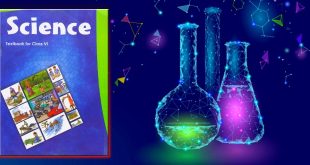Water – 6th Class NCERT CBSE Science Chapter 14 Question: Fill up the blanks in the following: The process of changing of water into its vapour is called ________ . The process of changing water vapour into water is called ________ . No rainfall for a year or more may lead to …
Read More »NCERT 6th Class (CBSE) Science: Fun with Magnets – Quiz
NCERT 6th Class (CBSE) Science: Fun with Magnets – Quiz 19 Multiple Choice Questions related to NCERT 6th Class (CBSE) Science: Fun with Magnets – Quiz: Using a compass is better as stars are only visible at night and sometimes they are not seen at night due to pollution and …
Read More »Light, Shadows and Reflection: 6th CBSE Science Ch 11
Light, Shadows and Reflection – 6th Class NCERT CBSE Science Chapter 11 Question: We see the sun rising 8 1/4 minutes after it has risen. Why? Answer: The speed of light is 3 lakh per second. The sun’s raise take time to reach on earth. Question: Name two sources of light and two …
Read More »Motion and Measurement of Distances: 6th Science Ch 10
Motion and Measurement of Distances – 6th Class NCERT CBSE Science Chapter 10 Question: Give two examples each of modes of transport used on land, water and air. Answer: Land – Bus, truck, train Water – Ship, boat Air – Aeroplane, Helicopter Question: Fill in the blanks: One metre is ___________ . …
Read More »The Living Organisms and Their Surroundings: 6th Science Ch 9
The Living Organisms and Their Surroundings – 6th Class NCERT CBSE Science Chapter 09 Question: What is a habitat? Answer: The surroundings where animals live is called their habitat. The organisms depend on their habitat for their food, water, air, shelter and other needs. Habitat means a dwelling place. Question: How are …
Read More »Body Movements: 6 Class NCERT CBSE Science Chapter 8
Body Movements – 6th Class NCERT CBSE Science Chapter 08 Question: Fill in the blanks: Joints of the bones help in the _________ of the body. A combination of bones and cartilages forms the _________ of the body. The bones at the elbow are joined by a _________ . The contraction of …
Read More »Changes Around Us: 6th Class NCERT CBSE Science Ch 6
Changes Around Us – 6th Class NCERT CBSE Science Chapter 06 Question: Breaking of tumbler and burning of paper are change in which we cannot get back the original substances what is the difference between these two changes? Answer: Breaking of glass tumbler is physical change as no new substance has formed and the …
Read More »Separation of Substances: 6th NCERT CBSE Science Ch 5
Separation of Substances – 6th Class NCERT CBSE Science Chapter 05 Question: Why do we need to separate different components of a mixture? Give two examples. Answer: Among different components of mixture there are many substances which are harmful or not useful for us. To remove these harmful or unuseful components we need …
Read More »Getting to Know Plants: 6 Class NCERT CBSE Science Ch 7
Getting to Know Plants – 6th Class NCERT CBSE Science Chapter 07 Question: Correct the following statements and rewrite them in your notebook. Stem absorbs water and minerals from the soil. Leaves hold the plant upright. Roots conduct water to the leaves. The number of sepals and petals in a flower is …
Read More »Sorting Materials Into Groups: 6 NCERT CBSE Science Ch 4
Sorting Materials Into Groups – 6th Class NCERT CBSE Science Chapter 04 Question: Name five objects which can be made from wood. Answer: Table Chair Doors Boat Bed Question: Select those objects from the following which shine: Glass bowl, plastic toy, steel spoon, cotton shirt Answer: Glass bowl and steel spoon are shining …
Read More » Class Notes NCERT Solutions for CBSE Students
Class Notes NCERT Solutions for CBSE Students

